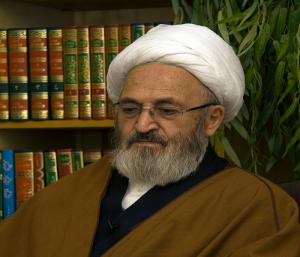Companions of Holy Prophet and Imams
Maytham al-Tammar: The Faithful Companion of Imam Ali (A.S)
- Published at
-
- Source:
- http://en.rafed.net

Imam Ali bought Maytham as a slave and then freed him. He asked him what his name was;"Salim", he said:"But I heard the Prophet saying that your true name was Maytham"."He was correct and you are also correct. My true name is Maytham".
Sayyid Abd Al-Azim Al-Hasani
- Published at
-
- Author:
- Ayatullah Ja’far Subhani, Translated by: Afzal Sumar
- Source:
- www.al-islam.org
 Sayyid ‘Abd Al-’Azim Al-Hasani
Sayyid ‘Abd Al-’Azim Al-Hasani
Ammar bin Yasir
- Published at
-
- Source:
- www.shiaforums.net
 The people in Makkah lived in ignorance and darkness. The strong persecuted the weak and deprived them of their rights. No one supported the weak.
The people in Makkah lived in ignorance and darkness. The strong persecuted the weak and deprived them of their rights. No one supported the weak.
The Famous Muslim Women: The First Woman Martyr in Islam, Sumayya bint Khayyat
- Published at
-
- Author:
- Syed Ali Shahbaz
- Source:
- www.imamreza.net
 Women have played an important role in the history of Islam from its beginnings. One such lady who is well known by Muslims but does not always receive that much attention is SumayyahbintKhayyat. She was a black-skinned person from Africa, who was treated as a slave by the light-skinned Arab infidels of Mecca. In 615 CE, on hearing of the declaration of the universal message of Islam by Prophet Mohammad (SAWA), Sumayya, along with her husband, Yasser IbnAmmar and son, Ammar, believed in his mission, and became Muslim. This angered the Arab infidels and they started active persecution of the small Muslim community.
Women have played an important role in the history of Islam from its beginnings. One such lady who is well known by Muslims but does not always receive that much attention is SumayyahbintKhayyat. She was a black-skinned person from Africa, who was treated as a slave by the light-skinned Arab infidels of Mecca. In 615 CE, on hearing of the declaration of the universal message of Islam by Prophet Mohammad (SAWA), Sumayya, along with her husband, Yasser IbnAmmar and son, Ammar, believed in his mission, and became Muslim. This angered the Arab infidels and they started active persecution of the small Muslim community.
Muhammad Ibn Abi Bakr: A Faithful Companion of Imam Ali (A.S)
- Published at
-
- Author:
- Ayatullah Ali Dawani, Translated by: Sayyid Athar Husain S.H. Rizvi
- Source:
- www.maaref-foundation.com
 This is an account of a young man who stands out prominently among the devotees of Amirul Momineen (a.s) and who spent his life like a bud just blooming. He is Muhammad Ibn Abi Bakr who was born in the tenth year of Hijri. His mother was Asma. Previously Asma was the wife of Ja’far at-Tayyar. After he was martyred she married Abu Bakr, and Muhammad was born of this union. After the death of Abu Bakr, Asma married Amirul Momineen Ali Ibn Abi Talib (a.s), the brother of Ja’far at-Tayyar. Another son was born to her through Ali (a.s), named Yahya.
This is an account of a young man who stands out prominently among the devotees of Amirul Momineen (a.s) and who spent his life like a bud just blooming. He is Muhammad Ibn Abi Bakr who was born in the tenth year of Hijri. His mother was Asma. Previously Asma was the wife of Ja’far at-Tayyar. After he was martyred she married Abu Bakr, and Muhammad was born of this union. After the death of Abu Bakr, Asma married Amirul Momineen Ali Ibn Abi Talib (a.s), the brother of Ja’far at-Tayyar. Another son was born to her through Ali (a.s), named Yahya.
Were All Companions Just and Truthful?
- Published at
-
- Source:
- www.al-islam.org
 A brief text delving into the topic of companions of the Holy Prophet (saw) from a Shi'a and Sunni perscpective.
“O Believers, if an unrighteous person comes to you with information, you should verify it or else you might inflict harm on a people in ignorance and then end up regretting what you have done” (Holy Qur'an: Chapter 49, Verse 6)
A brief text delving into the topic of companions of the Holy Prophet (saw) from a Shi'a and Sunni perscpective.
“O Believers, if an unrighteous person comes to you with information, you should verify it or else you might inflict harm on a people in ignorance and then end up regretting what you have done” (Holy Qur'an: Chapter 49, Verse 6)
The Shi‘ah among the Companions (Sahabah)
- Published at
-
- Author:
- Ghulam-Husayn Muharrami
- Source:
- http://www.imamreza.net
 We said earlier that the first person to call the followers of ‘Ali (‘a) as “Shi‘ah” was the receiver of the divine revelation, Muhammad al-Mustafa (S). During the time of the Holy Prophet (S) a number of his Companions were known as “Shi‘ah of ‘Ali”. In Khatat ash-Sham, Muhammad Kird ‘Ali thus writes: During the period of the Holy Prophet (S), a number of the great Companions was known for their fellowship and friendship with ‘Ali such as Salman al-Farsi who used to say: “We pledged allegiance to the Messenger of Allah (S) that we would be the well-wishers of Muslims and that we follow and befriend ‘Ali ibn Abi Talib”; and Abu Sa‘id al-Khudri who used to say: “We were ordered five things, of which the people acted upon the four but have abandoned one of them.”
We said earlier that the first person to call the followers of ‘Ali (‘a) as “Shi‘ah” was the receiver of the divine revelation, Muhammad al-Mustafa (S). During the time of the Holy Prophet (S) a number of his Companions were known as “Shi‘ah of ‘Ali”. In Khatat ash-Sham, Muhammad Kird ‘Ali thus writes: During the period of the Holy Prophet (S), a number of the great Companions was known for their fellowship and friendship with ‘Ali such as Salman al-Farsi who used to say: “We pledged allegiance to the Messenger of Allah (S) that we would be the well-wishers of Muslims and that we follow and befriend ‘Ali ibn Abi Talib”; and Abu Sa‘id al-Khudri who used to say: “We were ordered five things, of which the people acted upon the four but have abandoned one of them.”
Holy Prophet's Advice to Abu Dharr Ghaffari
- Published at
 The prophet of Allah (as) said, “O Abu Dharr! Please remember what I am advising you and act on it! There are two blessings that men are oblivious of! One, the health of the body and the second is the leisure they get! They don’t make good use of these two blessings and repent later on!
The prophet of Allah (as) said, “O Abu Dharr! Please remember what I am advising you and act on it! There are two blessings that men are oblivious of! One, the health of the body and the second is the leisure they get! They don’t make good use of these two blessings and repent later on!
The Assasination of Malik-e-Ashtar
- Published at
-
- Author:
- Sheikh al-Mufid
- Source:
- www.imamreza.net
 He said: Abul Hasan Ali b. Muhammad b. Hubaysh al-katib reported to me from al-Hasan b. Ali al-Za'farani, who reported from Ibrahim b. Muhammad al-Thaqafi, from Muhammad b. Zakariyya, from Abdullah b. al-Dhahhak, from Hisham b. Muhammad, who said:
He said: Abul Hasan Ali b. Muhammad b. Hubaysh al-katib reported to me from al-Hasan b. Ali al-Za'farani, who reported from Ibrahim b. Muhammad al-Thaqafi, from Muhammad b. Zakariyya, from Abdullah b. al-Dhahhak, from Hisham b. Muhammad, who said:
A Useful Debate on the Merits of Being a party of BAI'AT-E-RIZWAN
- Published at
-
- Source:
- http://www.ghadeer.org
 You said that since the sahaba were at the Bai'at-e-Rizwan and pledged their fealty to the Prophet, they were not subject to condemnation, but deserved praise because they are the referents of the holy verse you cited (48:18). Research scholars and ulema have commented extensively on this topic, saying that the divine pleasure of this verse refers only to the particular action, Bai'at (allegiance), and that it does not extend indefinitely.
You said that since the sahaba were at the Bai'at-e-Rizwan and pledged their fealty to the Prophet, they were not subject to condemnation, but deserved praise because they are the referents of the holy verse you cited (48:18). Research scholars and ulema have commented extensively on this topic, saying that the divine pleasure of this verse refers only to the particular action, Bai'at (allegiance), and that it does not extend indefinitely.
Salman-e-Farsi
- Published at
-
- Source:
- www.islamicoccasions.com
 According to the investigations and researches of the Arab historians, Salman was born in or around the year 568 A.D., in a small town in Persia called Jiyye. The modern city of Isfahan stands on the site of Jiyye. ...
According to the investigations and researches of the Arab historians, Salman was born in or around the year 568 A.D., in a small town in Persia called Jiyye. The modern city of Isfahan stands on the site of Jiyye. ...
The Faithful Commander of Imam Ali (a.s): Malik al-Ashtar
- Published at
-
- Source:
- www.islamicoccasions.com
 But on the normal days, he looked a poor man. He wore simple clothing. He walked humbly. Thus most people did not know him.
But on the normal days, he looked a poor man. He wore simple clothing. He walked humbly. Thus most people did not know him.
In the Memory of Khuzaima ibn Thabit: Martyred in the Battle of Siffin
- Published at
 Khuzaima ibn Thabit Dhu'sh-Shahadatain al-Ansari (Arabic: خزيمة بن ثابت ذو الشهادتين الأنصاري; Martyred July 657 CE in the Battle of Siffin on the side of Imam Ali a.s) was one of the companions of Muhammad.
Biography
610–632: Muhammad (P.B.U.H)'s era
He was an Ansar.[1]
Khuzaima ibn Thabit Dhu'sh-Shahadatain al-Ansari (Arabic: خزيمة بن ثابت ذو الشهادتين الأنصاري; Martyred July 657 CE in the Battle of Siffin on the side of Imam Ali a.s) was one of the companions of Muhammad.
Biography
610–632: Muhammad (P.B.U.H)'s era
He was an Ansar.[1]
A Brief History of Salman, the Persian
- Published at
-
- Author:
- Sayyid Saeed Akhtar Rizvi
- Source:
- www.al-islam.org
 First and foremost, of course, is Salman al-Farsi (the Persian). 1 He was the son of a Zoroastrian priest in the province of Fars. From the very beginning, he was aspiring to find and follow a religion free from the embellishes of human interpolations. This was long before the advent of Islam. He was converted to Christianity, and served one distinguished priest after another in quest of divine knowledge.
First and foremost, of course, is Salman al-Farsi (the Persian). 1 He was the son of a Zoroastrian priest in the province of Fars. From the very beginning, he was aspiring to find and follow a religion free from the embellishes of human interpolations. This was long before the advent of Islam. He was converted to Christianity, and served one distinguished priest after another in quest of divine knowledge.
- «
- Start
- Previous
- 1
- Next
- End
- »


